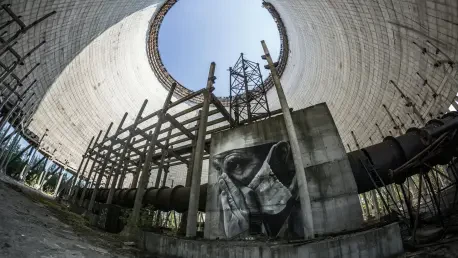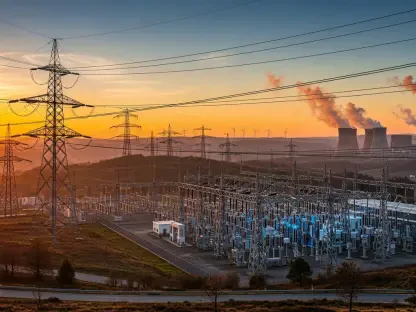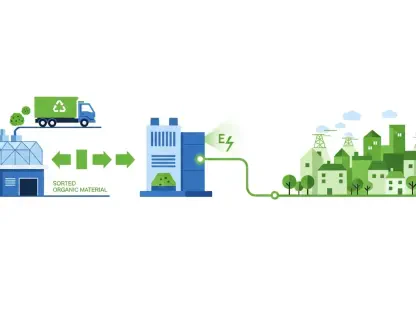Kicking off a new era in Brazil’s energy landscape, a staggering deal worth 535 million reais has positioned J&F, the conglomerate behind global meatpacking giant JBS, as a key player in nuclear energy. Through its subsidiary Ambar Energia, J&F has acquired a significant stake in Eletronuclear, previously under the control of state-run Eletrobras. This transaction not only marks a pivotal shift toward public-private partnerships in a traditionally state-dominated sector but also raises critical questions about innovation, oversight, and trust. This roundup gathers diverse opinions, tips, and analyses from industry insiders, analysts, and policy watchers to unpack how this move is reshaping the nuclear energy scene in Brazil and what it means for stakeholders across the board.
Unpacking Diverse Perspectives on J&F’s Nuclear Venture
The Eletronuclear Acquisition: A Strategic Leap or Risky Bet?
Industry observers have hailed the acquisition of a 68% stake in Eletronuclear’s total capital by Ambar Energia as a landmark moment for Brazil’s energy infrastructure. Many point out that the deal, which includes Ambar assuming 2.4 billion reais in debentures, showcases a rare blend of private investment with government oversight through ENBPar. This balance is seen as a potential model for future collaborations in critical sectors, with some suggesting it could unlock much-needed capital for modernization.
However, not all feedback is positive. A segment of financial analysts expresses caution over the regulatory hurdles that still loom large, emphasizing that approvals are pending and could stall progress. Concerns also linger about J&F’s historical ties to corruption scandals through JBS, with some arguing that public skepticism might undermine confidence in the partnership. These contrasting views highlight a divide between optimism for innovation and wariness of past governance issues.
Further deepening the discussion, energy sector consultants stress the importance of transparency in such high-stakes deals. Their advice centers on establishing clear communication channels between private entities and regulators to mitigate risks. This tip resonates with broader calls for accountability, especially given the sensitive nature of nuclear energy and its impact on national security.
J&F’s Wider Energy Ambitions: Diversification or Overreach?
Turning to J&F’s broader strategy, many industry watchers note that the Eletronuclear deal is just one piece of a larger puzzle for the Batista family’s conglomerate. Ambar Energia already manages multiple power generation units and is reportedly in talks to acquire a thermal plant in Rio de Janeiro from EDF. Supporters of this diversification argue that such moves position J&F as a multi-industry powerhouse, capable of leveraging synergies across energy, finance, and mining.
On the flip side, some operational experts caution against overextension, pointing out that managing nuclear assets demands specialized technical expertise far beyond traditional energy sectors. They suggest that J&F might face steep learning curves and operational complexities, potentially straining resources. This perspective urges a measured approach to expansion, prioritizing capability building over rapid growth.
Adding another layer, strategic advisors recommend that conglomerates like J&F invest heavily in talent acquisition and training to navigate unfamiliar terrain. Their tip focuses on partnering with seasoned nuclear energy professionals to bridge knowledge gaps. This practical guidance underscores a recurring theme in discussions: balancing ambition with preparedness is key to sustaining long-term success in high-risk industries.
Evolving Trends in Brazil’s Energy Infrastructure: Opportunity or Disruption?
The entry of private players like J&F into state-controlled sectors has sparked a lively debate among policy analysts about the future of Brazil’s energy framework. Many view this trend as a catalyst for innovation, suggesting that private capital could accelerate upgrades to aging nuclear facilities. This optimism is often tied to the belief that competition drives efficiency, potentially benefiting consumers through more reliable energy systems.
Conversely, a different school of thought warns that reduced state dominance might compromise accountability. Critics in this camp argue that privatizing critical infrastructure could prioritize profit over public safety, especially in a field as sensitive as nuclear energy. They advocate for stringent oversight mechanisms to ensure that private involvement does not erode public trust or strategic national interests.
Offering a middle ground, infrastructure specialists propose that hybrid models, like the one exemplified by the Eletronuclear partnership, could serve as a blueprint for balancing interests. Their advice to policymakers is to craft frameworks that incentivize private investment while embedding robust checks and balances. This nuanced take reflects a growing consensus that collaboration, rather than competition, between public and private entities might shape the sector’s trajectory.
Balancing Profit Motives with Public Interest: A Tightrope Walk?
Delving into the intersection of corporate goals and societal needs, energy ethics commentators emphasize the delicate equilibrium J&F must maintain in its nuclear venture. They note that while profit-driven motives are inherent to private enterprises, the public expects safe and reliable energy underpinned by government oversight. Many in this group call for J&F to prioritize a visible commitment to safety standards as a trust-building measure.
Differing opinions emerge from historical comparisons, with some analysts pointing to other public-private partnerships in Brazil’s energy sector that have faced scrutiny over transparency. They caution that J&F’s past controversies could amplify public wariness, urging the conglomerate to adopt proactive disclosure practices. This perspective highlights the weight of reputation in managing stakeholder perceptions in sensitive industries.
Rounding out the discussion, governance experts offer actionable tips for navigating this balance, suggesting that regular public reporting and independent audits could serve as tools to demonstrate accountability. Their insights stress the importance of aligning business strategies with public expectations, especially in sectors where societal impact looms large. This advice aims to guide companies like J&F in fostering goodwill amidst complex operational challenges.
Key Takeaways from the Nuclear Energy Debate
Synthesizing the array of opinions, the strategic importance of J&F’s Eletronuclear acquisition stands out as a transformative step for Brazil’s energy landscape. The consensus among various sources points to the conglomerate’s emergence as a formidable player, with the potential to drive innovation through private investment. Yet, the diversity of views also underscores significant risks, from regulatory delays to public distrust rooted in historical baggage.
For stakeholders, a recurring piece of advice is to prioritize transparent dialogue between private companies and government bodies. This approach is seen as essential for building confidence among communities and regulators alike. Additionally, monitoring the outcomes of similar public-private deals in the energy sector can provide valuable lessons for refining future collaborations.
Beyond immediate implications, readers are encouraged to keep an eye on how such partnerships influence local economies and national policies. Tracking regional impacts, such as job creation or infrastructure upgrades, offers a tangible way to gauge the real-world effects of these shifts. These practical steps can help demystify complex industry trends for a broader audience.
Reflecting on a Pivotal Moment in Brazil’s Energy Evolution
Looking back, the discourse surrounding J&F’s foray into nuclear energy revealed a spectrum of hopes and concerns that shaped a critical conversation in Brazil’s industrial narrative. The insights gathered from varied perspectives painted a picture of opportunity tempered by caution, as private capital ventured into uncharted territory. This roundup captured the essence of a sector at a crossroads, wrestling with the promise of progress against the backdrop of accountability.
Moving forward, a viable next step for industry players and policymakers alike would be to establish pilot frameworks for evaluating the long-term impact of such partnerships on energy security. Exploring international case studies where public-private models have thrived could offer fresh strategies to adapt locally. Ultimately, fostering a culture of collaboration and vigilance stands as the cornerstone for ensuring that Brazil’s nuclear energy future aligns with both economic goals and societal well-being.









